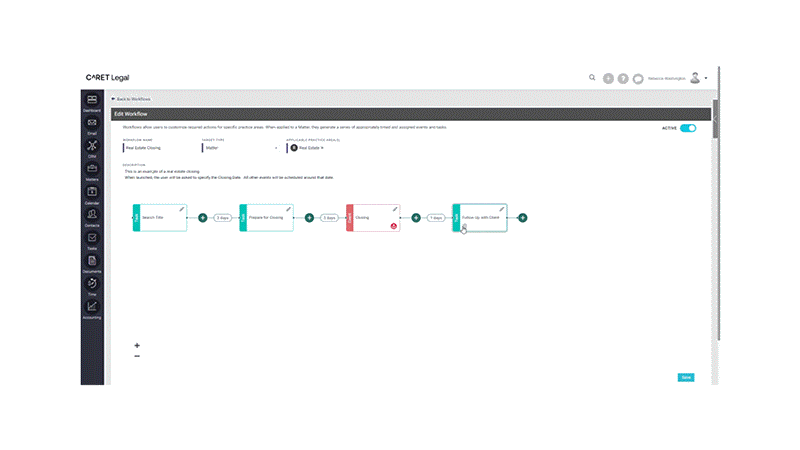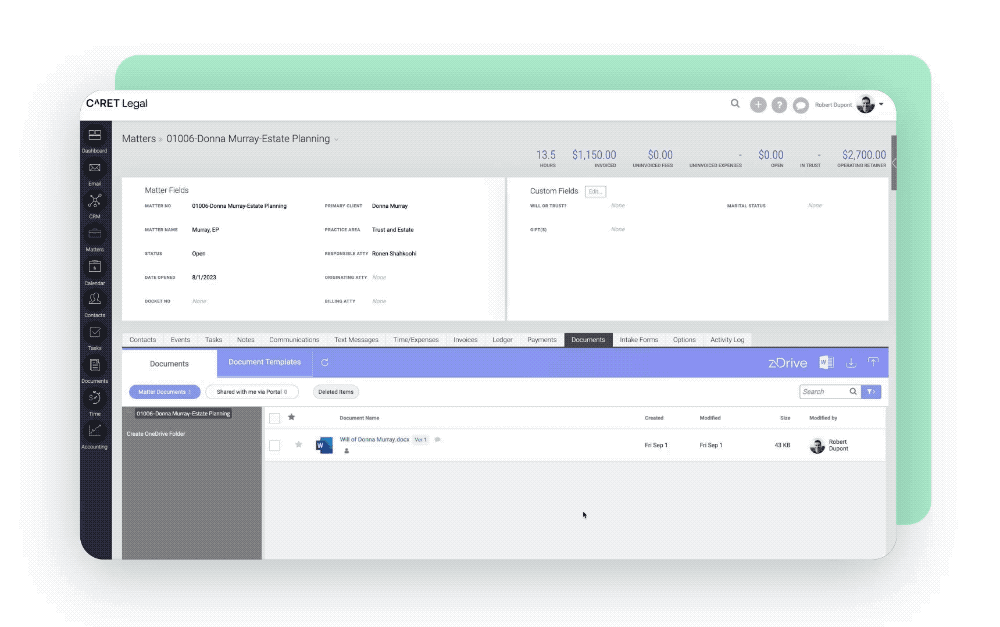By shifting toward legal workflow automation, firms can simplify operations, reduce delays, and maintain consistency across teams.
Law firms face growing demands on time, compliance, and client communication. Manual processes create unnecessary bottlenecks, which impact billing, task management, and case coordination. By shifting toward legal workflow automation, firms can simplify operations, reduce delays, and maintain consistency across teams.
CARET Legal’s intuitive legal platform supports this shift by offering built-in workflow automation tools tailored for legal professionals. These tools help firms streamline everyday tasks and support long-term operational consistency across practice areas.
Reducing Administrative Burden through Workflow Automation
Legal workflow management becomes more efficient when routine processes are standardized. CARET Legal’s platform supports firms by automating task creation and deadline tracking across case types. For example, workflows can automatically assign document reviews, follow-ups, and court dates based on matter type.
This approach reduces manual data entry and keeps teams aligned across recurring processes. Attorneys no longer need to track each task individually, and staff can work from predefined workflows that minimize confusion or miscommunication.
Built-in automation tools also help eliminate oversights. Reminders and alerts make it easier to monitor progress across multiple matters.

Document Management and AI-Powered Summaries
Managing legal documents across multiple matters and teams can slow down productivity. CARET Legal’s AI Quick Summary tool supports faster document review by generating summaries that highlight the main points and key takeaways. This feature is particularly helpful for firms handling large volumes of discovery materials, contracts, or internal case notes.
Documents are automatically linked to their corresponding matters within the platform, allowing teams to retrieve relevant files without switching systems. Version control and audit trails help keep work organized and accessible to the right users.
Using automation tools to summarize documents shortens review time, reduces human error, and supports more consistent communication across teams and with clients.

Billing, Time Tracking, and Compliance Workflows
Billing processes are another area where automation can reduce delays and improve consistency. CARET Legal supports passive time tracking with built-in tools that help attorneys log hours quickly, review entries regularly, and catch missed billables before invoicing. Routine time audits allow firms to compare billed hours with logged hours and identify gaps in reporting.
Streamlined billing workflows help firms maintain compliance and improve cash flow. Invoices can be sent directly through the platform, reducing the number of tools required to complete the billing cycle. Payment tracking, retainer balance updates, and collections management are also integrated, making it easier to monitor the firm’s financial health.
These automation capabilities reduce the administrative time spent on billing and help firms avoid late or inconsistent invoicing practices.
Improving Scheduling with Rules-Based Calendaring
Missed appointments and scheduling errors often result from disconnected calendars and manual coordination. Through an integration with LawToolBox, CARET Legal provides rules-based calendaring to automate appointment setting based on court rules, helping staff avoid back-and-forth communication and reducing the risk of errors in manual date calculations.
Appointments are tied to client matters and integrated across the platform. This creates one source of truth for scheduling and simplifies calendar visibility for attorneys, paralegals, and administrative staff.
